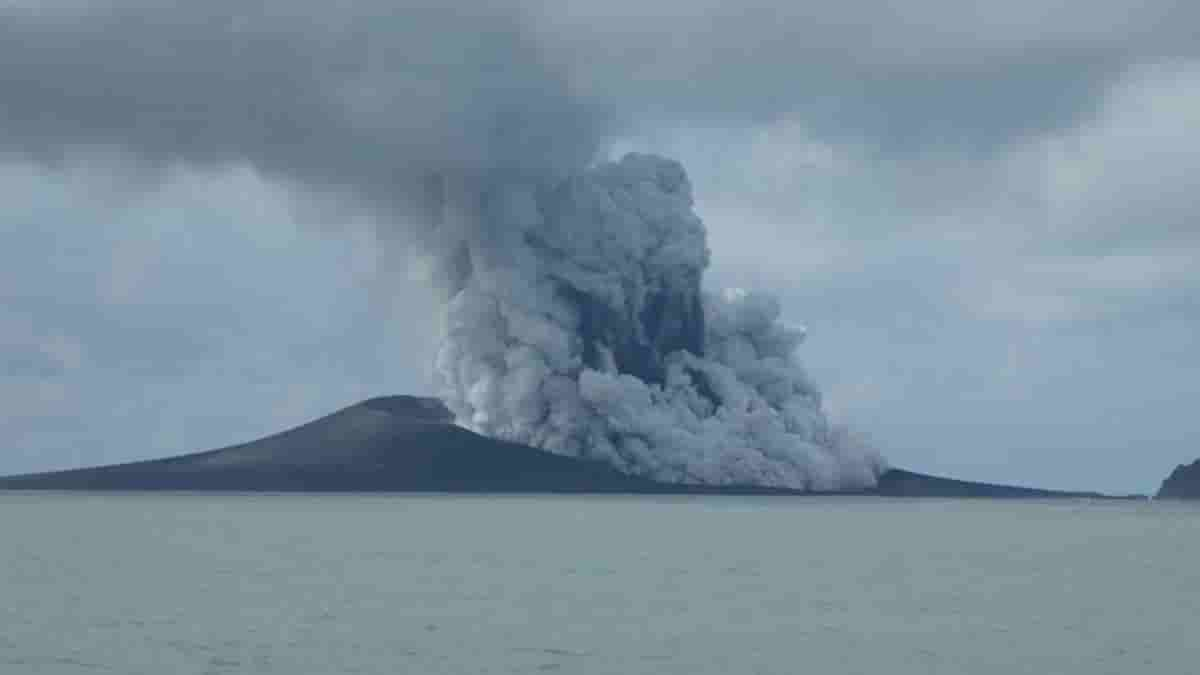50 million tons of water vapor from Tonga’s eruption could warm Earth for years

The underwater volcanic eruption of Hunga Tonga Hunga Ha’apai
In January 2022, an underwater Hunga Tonga-Hunga Ha’apai volcanic eruption took place in Tonga. Even though it’s been more than eight months post the outbreak, scientists are analyzing its impact. It was recently discovered that its explosion sent almost 50 million tons of water vapor into the Earth’s atmosphere.
After-effects of the underwater volcanic eruption in Tonga
The moisture in the global stratosphere increased by 5%. The effects of the underwater volcanic eruption will stay for an extended period of time. The excess water vapor injection will cause global temperatures to rise. It will cause surface warming and thus, contribute to the ever-rising climate change. It will take several months to dissipate.
Its relation and the impact on the ozone layer
The water vapor has created an enormous amount of atmospheric moisture. As per reports, this could weaken the ozone layer. Scientists across the world have slowly started its impact and dangers. There would be extra heat released due to the water vapor injection into the Earth’s atmosphere, warming the atmosphere like greenhouse gases. This is the first ever known eruption to have a warming influence rather than a cooling effect.
Climate change is real and Tonga’s underwater volcanic eruption is a witness to it. Climate change events are changing the world faster than ever humans had ever imagined in a hundred years. Natural calamities are a sign for humans to protect Mother Earth. Understand and take action to prevent climate change or else, be ready to face the consequences.


